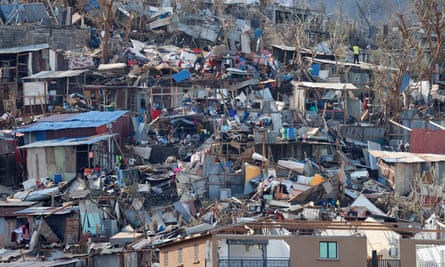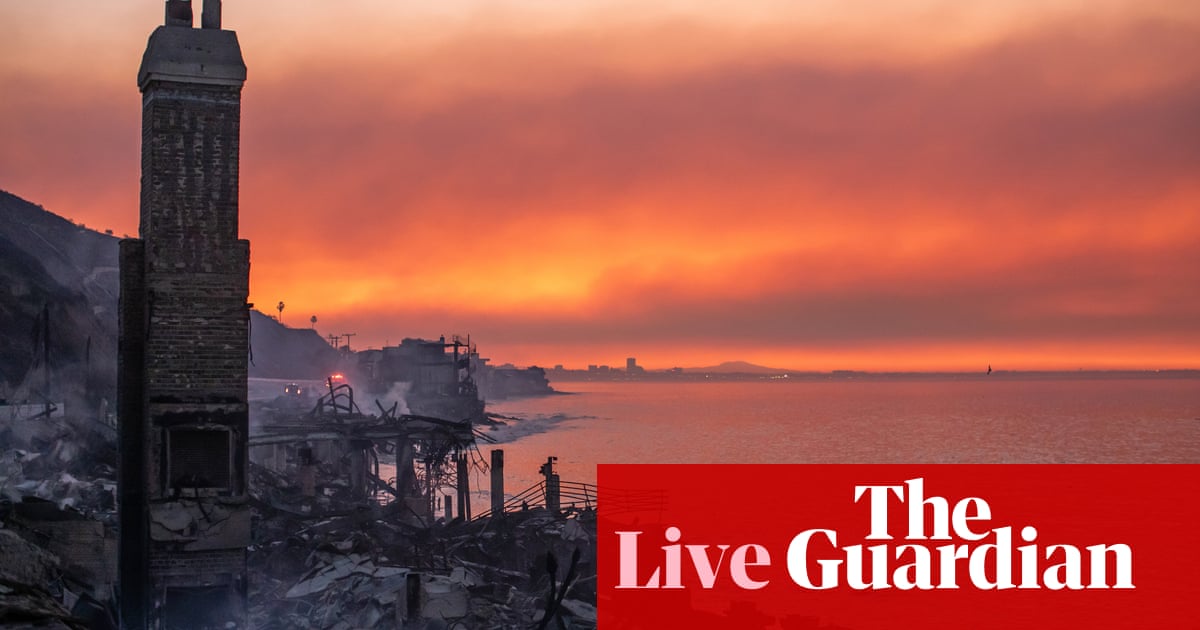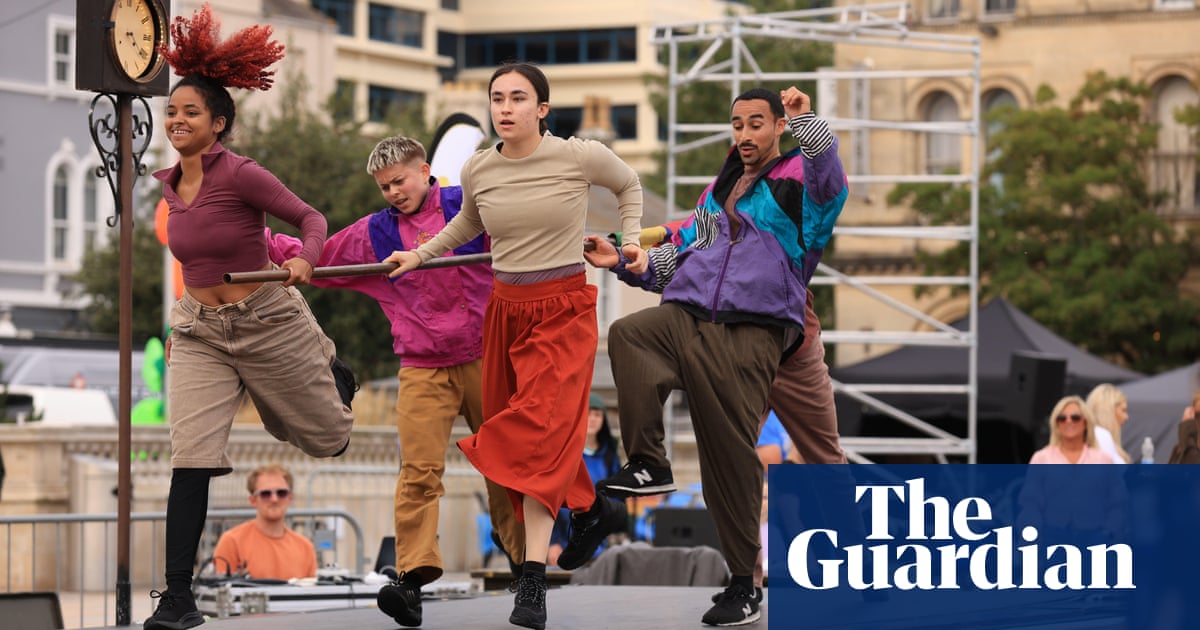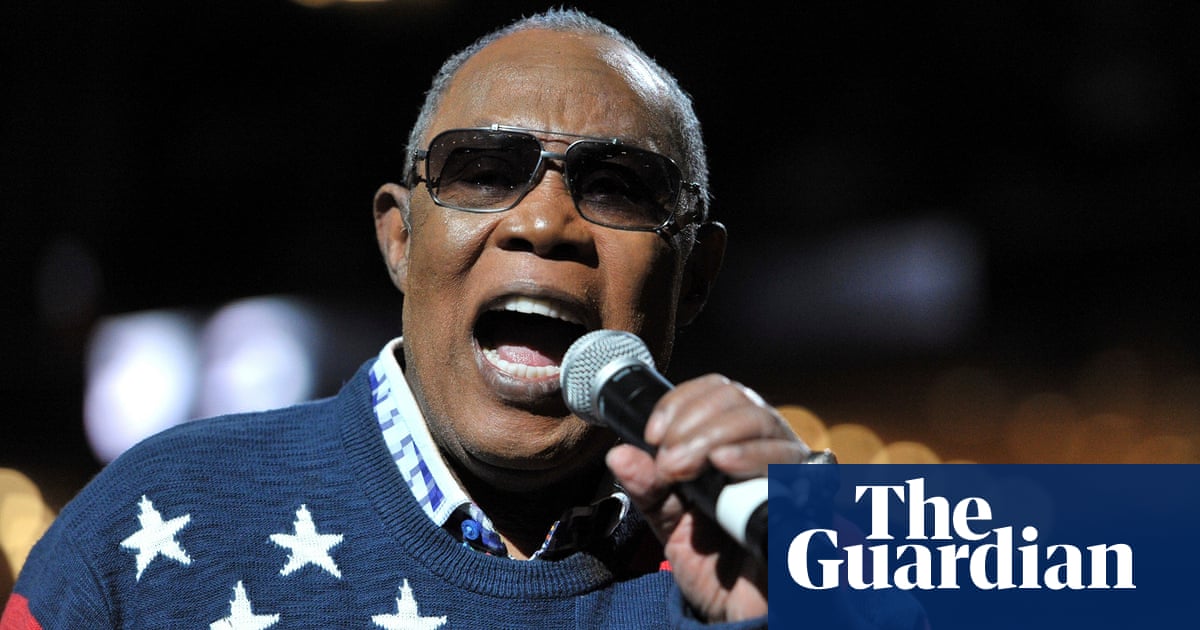Distraught and angry inhabitants of Mayotte shouted out their grievances to the French president, Emmanuel Macron, as he visited the island, five days after it was devastated by a cyclone.
High on their list was the lack of water and food, and the fear of looting.
Macron, in the French overseas territory on Thursday to assess the destruction wrought by Cyclone Chido, said he would extend his trip by a day so he could inspect remote areas of the Indian Ocean archipelago. He has declared a national day of mourning on Monday.
Emergency teams were still searching for survivors and supplying desperately needed aid.
“Mr President, nobody feels safe here,” one woman told Macron during his visit to the Mamoudzou hospital centre. “People are fighting over water.”
As Macron talked to hospital workers, one staff member said under her breath: “Two more days and we won’t be able to feed the patients any more. I’m disgusted.”
One man in the group called the president’s attention to looting, saying thieves could easily enter houses that had had their roofs blown off, despite the nightly curfew.
“Mr President, we fear that this is becoming like Haiti,” he said, referring to the poverty-stricken, crime-ridden Caribbean country that has been in a state of emergency since March.
Macron responded by promising to do “everything in my power so you have water, food and electricity” and vowed to “rebuild” Mayotte. His assurances got a mixed reception, from hope to incredulity. The president told reporters he would step up the fight against illegal immigration, “while at the same time rebuilding schools, rebuilding homes, rebuilding the hospital, and so on”.

“Don’t let anybody say that the government threw in the towel,” he added.
The president’s visit came after Paris declared “exceptional natural disaster” measures for Mayotte late on Wednesday.
Mayotte, located near Madagascar off the coast of south-eastern Africa, is France’s poorest region. Macron’s plane carried 20 doctors, nurses and civil security personnel, as well as four tonnes of food and sanitary supplies. “Don’t leave too soon,” one airport security official, Assan Halo, begged the president as he arrived. “We have nothing left.”
Some bystanders jeered the presidential convoy as it passed a petrol station, where cars were lined up in a long queue hoping to get fuel. “It’s crazy,” said one Mayotte police officer, asking not to be named. “You get the feeling the government completely underestimated the disaster’s scale.”
A preliminary toll from France’s interior ministry says 31 people have been confirmed killed, 45 seriously hurt, and more than 1,370 are suffering lighter injuries. But officials say a final death toll of hundreds or even thousands of people is likely.
“The tragedy of Mayotte is probably the worst natural disaster in the past several centuries of French history,” the prime minister, François Bayrou, said.
France said it had activated the EU’s civil protection mechanism, a pooled response to disasters. The government has issued a decree freezing the prices of consumer goods in Mayotte to pre-cyclone levels in response to widespread shortages.
Meteorologists say Cyclone Chido, which hit the island on Saturday, was the latest in a string of storms worldwide fuelled by climate change.
An estimated one-third of Mayotte’s population lived in shantytowns, whose flimsy, sheet metal-roofs offered scant protection from the storm.
At Mamoudzou hospital, windows were blown out and doors ripped off hinges but most of the medics were sleeping there as Chido had swept their homes away. Electricians were racing to restore a maternity ward, France’s largest with about 10,000 births a year.
Some bodies may never be identified as much of the population is Muslim, with their religious tradition dictating that bodies be buried rapidly.
“There are open-air mass graves. No emergency services,” said Estelle Youssouffa, a National Assembly deputy for Mayotte. “Nobody is coming to get the bodies.”
One man in the crowd told Macron: “In the shantytowns, people bury the bodies in shallow graves.”
Assessing the death toll is further complicated by illegal immigration, especially from the Comoros islands to the north, which means that much of the population is unregistered. While Mayotte officially has 320,000 inhabitants, the authorities estimate the actual figure is 100,000-200,000 higher.

.png) 3 weeks ago
13
3 weeks ago
13













































